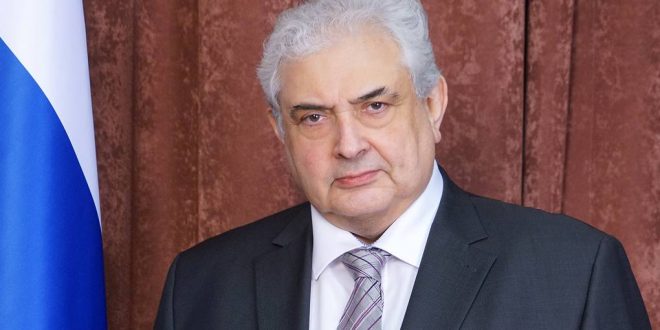MOSCOW, May 15, (ST)- The sober-minded part of Germany’s establishment realizes that it isn’t possible to break down and isolate Russia, Russian Ambassador to Germany Sergey Nechayev told the Soloviev Live TV channel.
“The clear-headed part of the political establishment realizes that it won’t be possible to defeat us quickly and swiftly as they wanted, it is not possible to defeat us at all, it is not possible to isolate us politically,” the envoy said.
The diplomat noted that the statements of German politicians supporting the swiftest embargo on Russian oil, gas and coal are being made “rather for the internal political reasons or to cater to the Anglo-Saxon mainstream.” “The Germans realize that if gas stops, everything will become more expensive and it will get cold. I think that the sober-minded politicians understand that there are certain risks and the population absolutely doesn’t need this,” the ambassador added.
The Nord Stream 2 pipeline project will be revived at some point, Nechayev told.
“The time will come to return to this project, at least, I hope so,” he said, noting that technically the project had been fully completed and the pipeline can immediately begin to deliver gas to Germany’s infrastructure.
“On the other hand, there is a political underpinning not to use gas from Russia in any way, on the contrary, to reduce imports from Russia. What will this lead to? I think that it will additionally lead to price hikes both on fuel and staples, including food products,” he added.
On February 22, German Chancellor Olaf Scholz announced that the German government was suspending the certification of the Nord Stream 2 project after Russia recognized the sovereignty of the Donetsk and Lugansk People’s Republics.
The construction of Nord Stream 2 was fully completed on September 10, 2021. Initially, it was planned to be completed before the end of 2019, but due to Washington’s sanctions, the construction was delayed. The gas pipeline consists of two strings with a total capacity of 55 billion cubic meters per year, which run from the coast of Russia through the Baltic Sea to Germany.
Source: TASS

